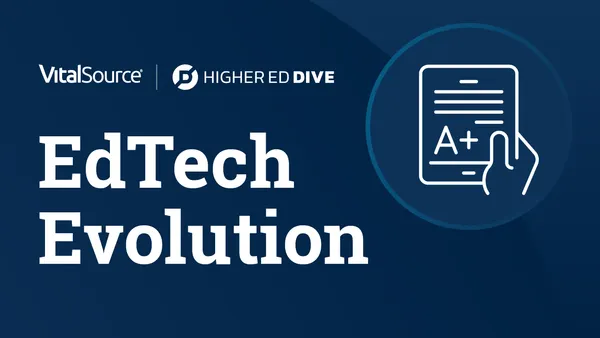Dive Brief:
- Large companies are increasingly working with higher ed providers to cultivate future graduates who will be prepared employees.
- Companies like AT&T have begun collaborating directly with online course providers Udacity and Coursera to create programs that correspond directly with the jobs they're seeking to fill, Campus Technology reports.
- The companies are looking ahead as far as 10 years out to anticipate the kinds of skills that will drive the workforce, sometimes tailoring for specific hiring needs, but sometimes creating broader programs aimed at growing the industry down the line.
Dive Insight:
The issue of a persistent gap between what higher ed is teaching students and what employers are seeking has been an increasing concern in recent years. As the national emphasis continues to shift to institutions' ability to demonstrate positive ROI on the degrees they confer, higher ed as a whole must look inward at their missions and re-examine whether they are meeting the demands of a 21st century society. No longer is it good enough to simply produce good citizens; institutions today must produce good employees.
Increased collaboration with industry and the corporate world is a key component to bridging that gap. More communication between the two sectors will not only help universities figure out what exactly is needed, it could provide additional funding streams for institutions trying to make ends meet in austere times, as such collaboration may make corporations more willing to pour funds into programs that produce exactly the type of workers they want to hire.
Microcredentialing and certificate programs will also be increasingly relied upon to fill in some of those curricular gaps, and if institutions are to remain competitive, it would be wise for campus leaders to begin thinking about ways to incorporate a number of different educational options into their course catalogues.










